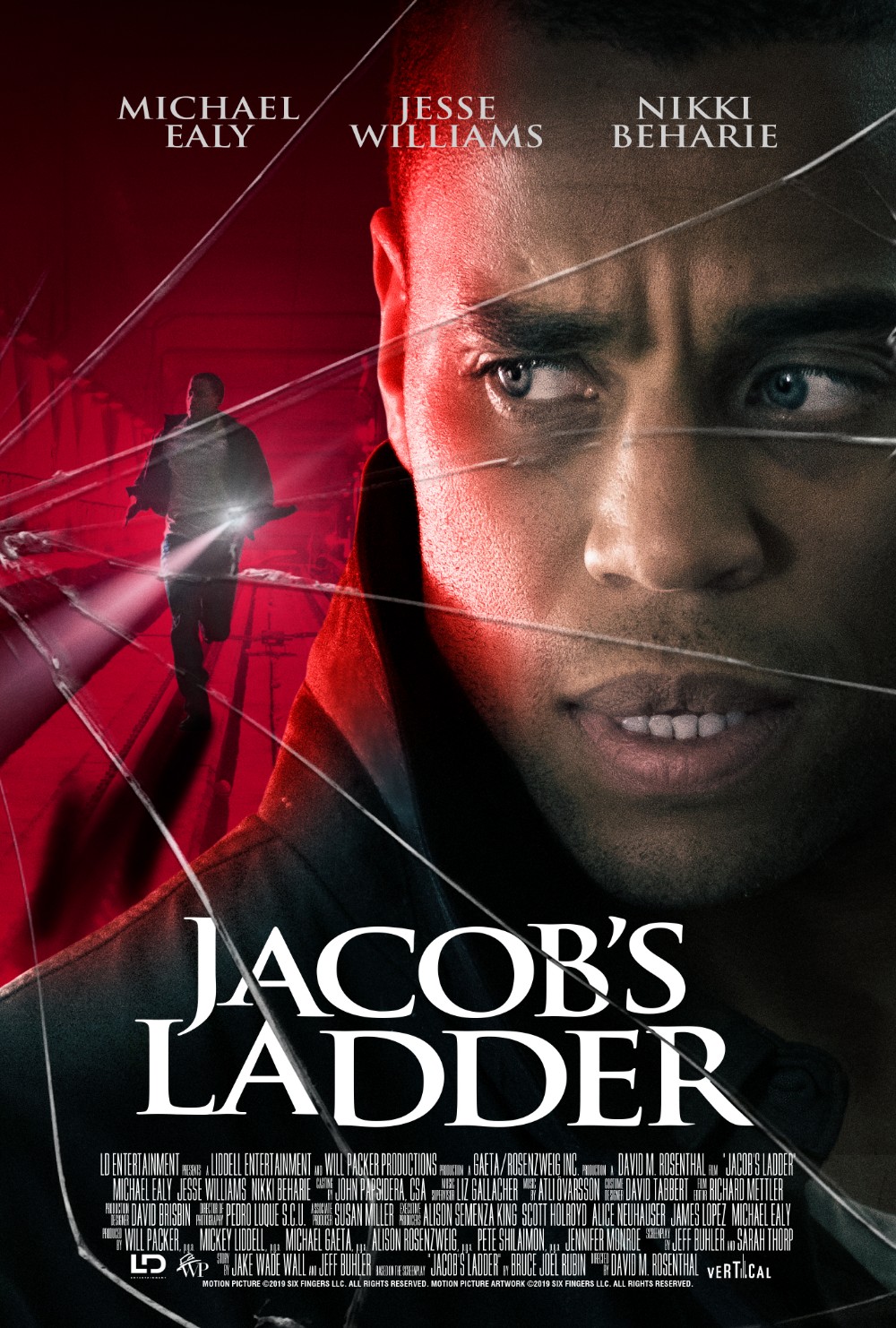Having rewatched the original Jacob’s Ladder recently, I found that, although the whole “shaky head” effect has become something of a horror cliche over the years, it holds up well as a visually striking and narratively challenging — but ultimately rewarding — paranoid thriller with a poignant emotional core. It’s no wonder why it’s remained a cult favorite after all this time. The 2019 version, on the other hand, will be remembered as a movie with the same title — that is, if it’s even remembered at all.
The basic premise for the remake is the same as the original: Jacob Singer (Michael Ealy) is a former combat medic who returns to the US emotionally scarred from his tour of duty, only to find himself menaced by mysterious, possibly supernatural figures. However, the redux introduces another character: his brother, Isaac (Jesse Williams), a Marine who’s deployed at the same time (and to the same location) as Jacob and is killed in battle. Or is he…?
You see, more than a year after coming home to Atlanta, a man named Paul who served with Isaac approaches Jacob and claims that his brother is in fact still alive, living in a homeless encampment in the nearby subway tunnels. Sure enough, Jacob tracks Isaac down and brings him home to his wife, Samantha (Nicole Beharie), and their newborn baby. But Isaac appears to be a shell of his former self, and as Jacob tries to uncover what happened to him, he finds himself pursued by hooded figures intent on keeping him from the truth. But who — or what — are they really?
Despite a marvelous cast and polished look — courtesy of director David Rosenthal, who worked with Ealy in The Perfect Guy — Jacob’s Ladder bites off more than it can chew in trying to fill the shoes of such an iconic film. Merely making the attempt is risky enough, but doing so with such a pedestrian script is truly baffling. The original is known for its provocative style, but the remake replaces the creative, nightmarish visuals with sterile CGI (even recycling the dated “shaky head” effect with much less impact) and swaps its reality-warping meditation on the afterlife for a relatively straightforward, superficial plot that borrows only the experimental drug plot element from the first move and runs with it. It admirably tries to make a statement about the plight of PTSD-stricken veterans, but compared to the nuanced original, the remake’s story is all thumbs. It was co-written, after all, by the guy who brought us the similarly tepid remakes of The Hitcher and When a Stranger Calls.
While I appreciate the filmmakers resisting the urge to make a slavish, point-for-point remake, the 2019 version ends up just taking all of the elements from the original and dulling them into a hollow echo of the first movie. Even if the first film didn’t exist, this would still be a sterile thriller, but its shortcomings are all the more glaring in comparison. Like the original, things become a bit murky regarding what’s real and what’s not, but unlike the original, you don’t care enough to try to reason it out.
The cast’s race — switched from white to black in the remake — has no impact on the story other than to lend a more attractive, mocha veneer than Tim Robbins’ sickly visage. The acting is first-rate, with Williams in particular standing out for playing against type, but Beharie is largely wasted as the wife who sits around worrying about her husband and nagging him into action.
While it’s a competent production overall, Jacob’s Ladder redux is ultimately pointless, just an inferior spin on the original that is the latest in a long line of unnecessary, ineffectual horror remakes.
